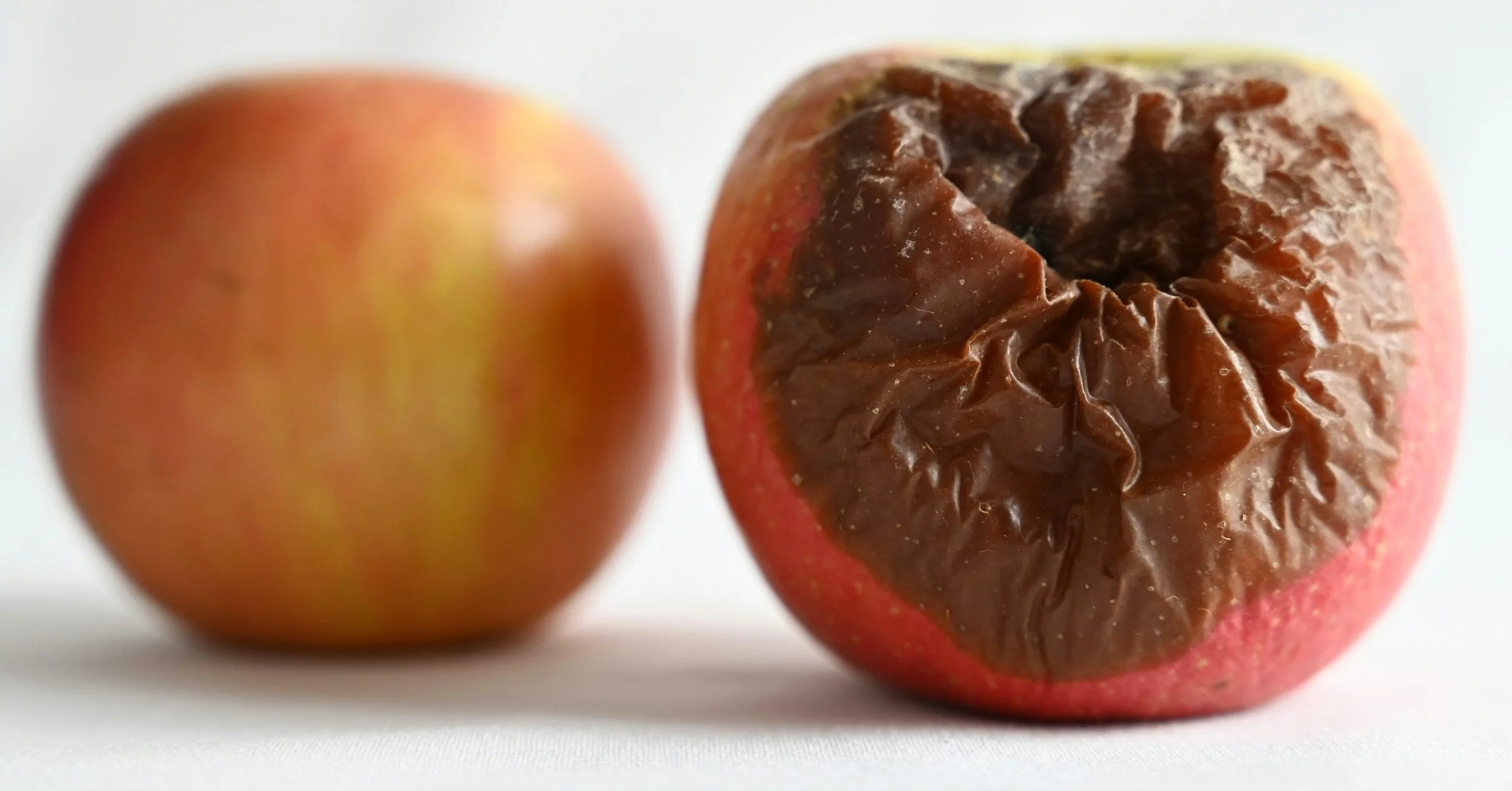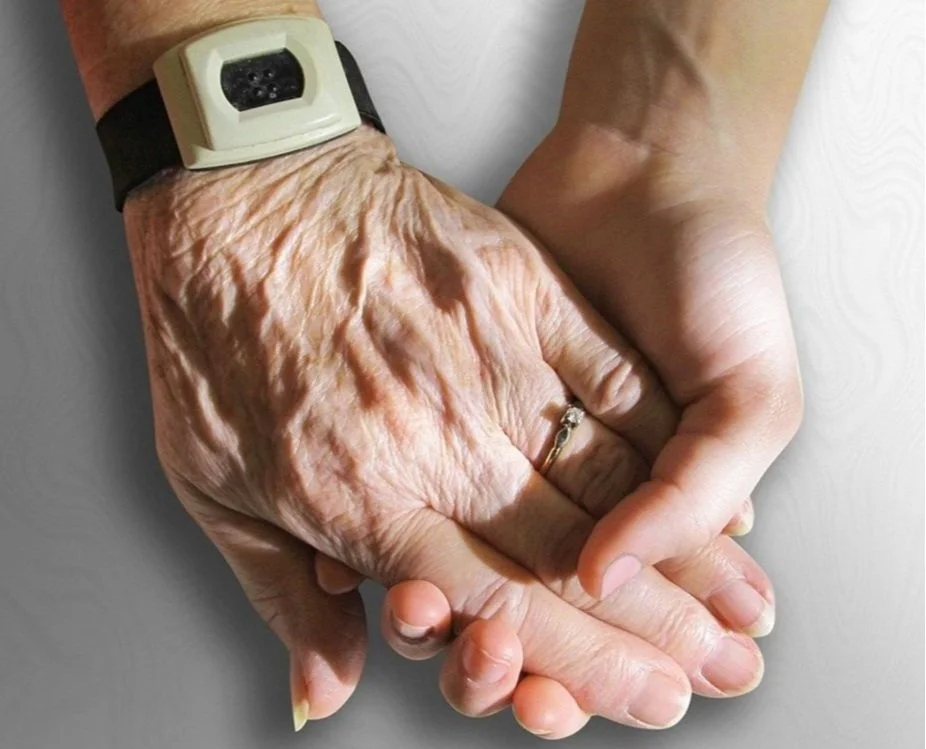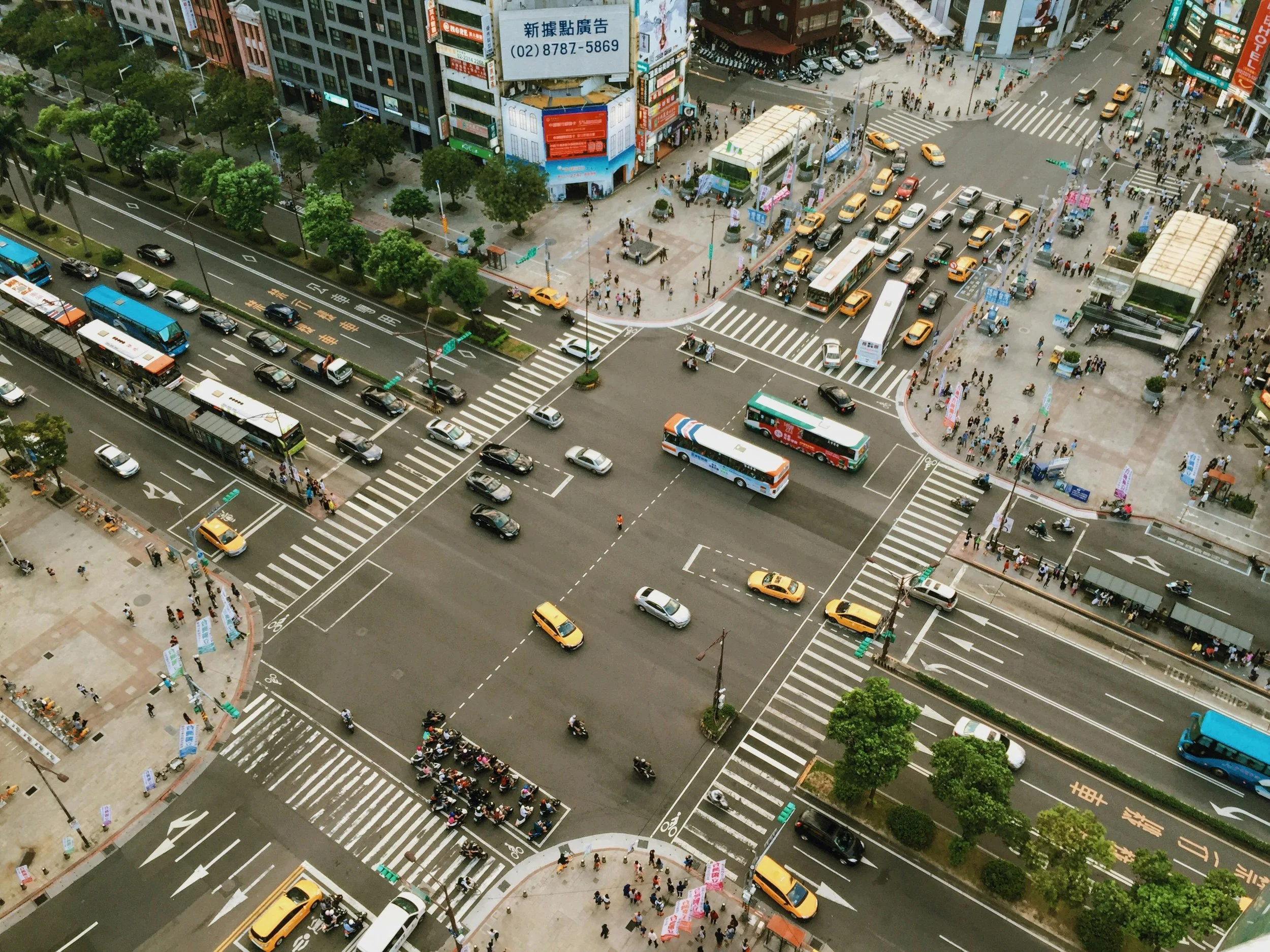2024 is history.
Many are excited about 2025 but are also worried about being a year older.
In the blink of an eye, the years would have come and gone, and wrinkles, gray streaks, and musical joints would have made home in people’s once-fit bodies.
Aging happens to all of us and in this post, we are going to learn about what it takes to “age gracefully.”
Is it possible to prolong the days of youth? Let’s find out.
What Is Aging?
Aging is the gradual process of change that affects every living organism, including humans.
At its core, aging is a biological phenomenon and begins at the cellular level.
Damage accumulates over time due to the natural wear and tear of cellular functions.
In the early years, cells replicate fast enough and good enough to offset any damage. But over time, cells become less efficient and begin to “drop the ball.”
For example, each time a cell divides, its telomeres—the protective “caps” at the end of chromosomes—shorten. This “shortening” limits a cell's ability to replicate, and leads to the decline in tissue and organ function that characterizes aging.
By the law of composition, if your cells are not what they used to be, your tissues, (made of different cells) would also not be in the best shape. Consequently, your organs and your organ systems are affected.
Aging that happens inside the cells manifest through changes in the body that can be seen and felt.
Let’s do a quick rundown of the transformations in the body as it ages.
Common Signs of Aging in the Body
#1 Skin
Fine lines and wrinkles, especially around the eyes, mouth, and forehead.
Loss of elasticity, resulting in sagging skin.
Thinner, more fragile skin that bruises easily.
Age spots or pigmentation changes, often due to sun exposure.
Dryness and reduced natural oil production, lead to flaky or itchy skin.
#2 Hair
Graying hair due to a decrease in melanin production.
Thinning hair or hair loss, particularly in men experiencing male-pattern baldness.
Coarser or more brittle hair texture.
#3 Vision and Hearing
Difficulty focusing on nearby objects (presbyopia), often requiring reading glasses.
Increased sensitivity to glare or trouble seeing in low light.
Cataracts or clouding of the eye's lens in later years.
Gradual hearing loss, particularly for high-frequency sounds (presbycusis).
#4 Oral Health
Gum recession and increased tooth sensitivity.
Yellowing teeth due to enamel wear and changes in dentin.
Dry mouth due to reduced saliva production.
#5 Body Shape and Weight
Development of a "paunch gut" or abdominal fat accumulation due to hormonal changes and slowed metabolism.
Muscle loss (sarcopenia), leads to reduced strength and tone.
Thinner arms and legs but increased fat around the torso.
#6 Bones and Joints
Stiff or achy joints, often due to cartilage wear and tear.
Decreased bone density, leads to conditions like osteoporosis and a higher risk of fractures.
Reduced flexibility and mobility.
#7 Heart and Circulation
Stiffer blood vessels, which can lead to higher blood pressure.
Slower recovery from physical exertion.
Visible veins, especially in the legs, due to reduced vein elasticity.
#8 Digestion and Metabolism
Slower metabolism, making weight management more challenging.
Increased risk of constipation due to slower digestive processes.
Reduced appetite or changes in taste and smell perception.
#9 Mental and Cognitive Changes
Mild memory lapses, such as forgetting names or misplaced items.
Slower processing speed for new information.
Difficulty multitasking.
#10 Energy and Sleep Patterns
Reduced stamina and quicker fatigue during physical or mental tasks.
Changes in sleep patterns, such as waking up earlier or experiencing lighter, less restorative sleep.
#11 Immune System
Slower wound healing.
Increased susceptibility to infections and longer recovery times.
#12 Reproductive and Hormonal Changes
In women, menopause typically occurs, leading to symptoms like hot flashes, mood swings, and bone loss.
In men, testosterone levels gradually decline, potentially causing reduced muscle mass, energy, and libido.
Aging Factors
Have you seen people who never seem to age? Like they’ve been stuck in time.
“Is she your sister?” people would say of your aunt or mother.
On the other hand, have you come across people who looked too worn out, you almost can’t believe that you guys are of the same age?
Time does not affect all people equally. Aging is not uniform across everybody.
There are factors at work that make people look too young or too old for their biological age.
Here are three of the biggest ones:
#1 Genetics
For example, people with a family history of premature graying, baldness, or early wrinkles may notice these signs earlier than normal. Conversely, some individuals inherit genes associated with robust collagen production, which, enables them to maintain a youthful appearance well into their later years.
#2 Lifestyle
Your habits have a substantial impact on how and when aging presents itself. Choices regarding diet, physical activity, sleep, and stress management can accelerate or decelerate the aging process.
For example, exercise is seen to slow one’s biological clock. It improves circulation, which nourishes skin cells and promotes elasticity. It also promotes muscle mass and bone density, helping individuals retain youthful posture and energy levels well into old age.
If you are chronically stressed, your body consistently produces excess cortisol. Cortisol is known to break down collagen, a vital skin component that keeps skin looking young and healthy.
#3 Environment
The environment we live in shapes how our bodies age.
For example, sun exposure is a leading cause of premature aging, when unprotected skin damages skin cells, causing wrinkles, spots, and loss of elasticity.
Environmental pollutants generate free radicals that accelerate aging.
The input that goes into the body comes from the general environment. An unhealthy environment accelerates aging. If you live in a place where the air you breathe is polluted, the water you drink has multiple traces of chemicals, and the food you ingest has toxins, the body will accumulate these and manifest them as aging.
Genetics, lifestyle, and environment are just three of the factors of aging. Gender, hormonal changes, emotional state, skincare, and medical intervention can also be added to the mix of factors of aging.
In the next section, we’ll look at practical ways one can “stop time,” and look younger longer. What should you do if you want to age gracefully?
How To Age Gracefully
#1 Stick to the DOs of Good Health
The secret to youth is really not a secret. It’s been screamed from the mountaintops for millennia. The problem is consistency. You have to make a habit of them. Make them your lifestyle.
The old health advice remains:
Eat a balanced diet. Nutrition is one of the cornerstones of aging gracefully. The food you consume fuels your body and affects your energy levels, skin, and overall health. A balanced diet of essential nutrients like antioxidants, vitamins, and minerals combat oxidative stress, reduce inflammation, and support cell repair.
For example, omega-3 fatty acids from fish keep the skin supple, while vitamin C aids collagen production to maintain skin elasticity.
Live an active lifestyle. Regular exercise promotes blood circulation, delivering oxygen and nutrients to the organs. It also reduces stress, improves mood, and strengthens the immune system, all of which contribute to graceful aging. If you want to maintain muscle tone, bone density, and cardiovascular health as you age, stay physically active.
This doesn’t just mean sports, but having a lifestyle that encourages you to move and engage your body (eg. doing chores, gardening, going up and down the stairs, carrying packages). A sedentary existence will make you weak over time.
Drink plenty of water. Hydration is one of the simplest, yet most impactful things you can do for your health. Water flushes out toxins, keeps skin hydrated and plump, supports proper digestion, and gives you energy that reflects youthful vibrancy. Being dehydrated on the other hand gives you low energy and dull skin, and makes you look and feel older.
Have plenty of sleep. Sleep is your superpower—playing a vital role in repairing and rejuvenating the body. During sleep, your body repairs cells, balances hormones, and reduces stress levels. Lack of sleep can lead to dark circles, fine lines, and a weakened immune system. Over time, chronic sleep deprivation accelerates physical and cognitive aging.
Take care of your skin. The skin is the most visible indicator of aging. So use moisturizers and sunscreen daily. Avoid UV exposure as much as possible, as it promotes wrinkles and discoloration. Smoking is a no-no for your skin.
Keep the body clean. Make it a habit to maintain your body by daily taking a bath, brushing your teeth after meals, and regularly trimming hair and nails. A clean and smart look goes a long way in making you look young and vibrant.
These habits are interconnected and create a foundation for keeping you physically healthy over the years. But “aging gracefully” is not just a matter of the physical. It also concerns one’s mental, emotional, and social well-being.
So you need to take care of these aspects as well.
#2 Maintain Your Mental Edge
Keep your mind consistently engaged. The brain, just like a muscle, needs to be challenged and stimulated.
Be a lifelong learner: Read. Learn a new language, pick up an instrument, or attend a local class.
Challenge your brain with puzzles and games. Sudoku, chess, and mentally challenging apps can help keep your mind sharp and engaged.
Practice mindfulness and meditation. They keep your mental health in check and defend against one of life’s most potent aging accelerants: Stress.
#3 Nurture Your Relationships
Loneliness can impact your physical health as much as smoking or obesity. Studies show that loneliness and isolation can lead to high blood pressure, heart disease, anxiety, depression, and even death. It should be taken seriously because the physical impacts worsen when ignored.
Make it a point to remain “connected.” Or, take steps to reconnect with old friends and family. Join groups such as Zumba groups, running circles, church-based groups, and volunteer/outreach organizations that lets you socialize with kindred spirits and folks with the same interest, hobbies, and values.
Regular meetings and conversations create a sense of belonging and boost emotional health and longevity.
#4 Find Your Purpose
A sense of purpose anchors us emotionally, giving life greater meaning.
Explore your passions and engage in activities that you personally find meaningful. It doesn’t have to make sense to other people, but it has to be extremely rewarding for you.
Travel, start a side project, or engage in your hobbies. Do the things you’ve always wanted to do. You’ve waited long enough. Your authentic self awaits discovery.
If you want to age gracefully, you have to be kind to yourself most of all, and do the things that feed your soul.
Because aging gracefully isn’t just about looking younger—it’s about living better.
#5 Practice Gratitude and Acceptance
Practicing gratitude shifts focus from what is lost with age to what is gained. It fosters a positive mindset, helping folks appreciate the experiences, relationships, and wisdom gained over the years.
Somebody grateful finds joy in the little details, the simplicity of a morning walk or the laughter of grandchildren.
Acceptance, on the other hand, allows people to be at peace with the natural order of things. Instead of resisting and lamenting changes, people understand that such is life. They focus on what truly matters: nurturing relationships and passions.
Together, gratitude and acceptance help diminish stress and promote resilience, allowing people to live a fulfilled life—no matter the weight of candles on the birthday cake.
As we turn the page on 2024, we face the year ahead with hope and grace. As always, BloodWorks Lab remains your partner in health and well-being—offering checkup packages and medical tests tailored to your needs.
Happy New Year To All!
Here’s to a year of aging gracefully!
Come visit us for your 2025 checkups.
Our branches are in Alabang, Katipunan, and Cebu.









